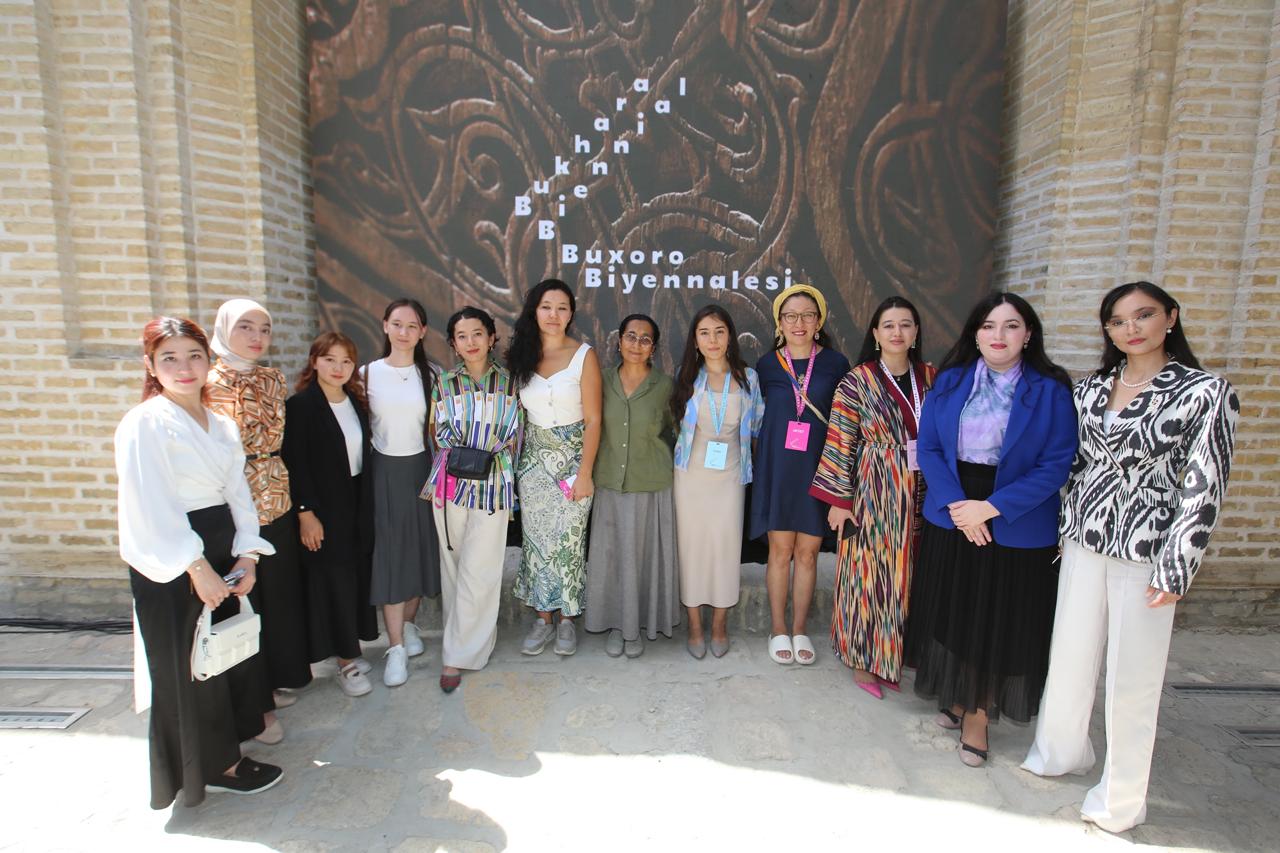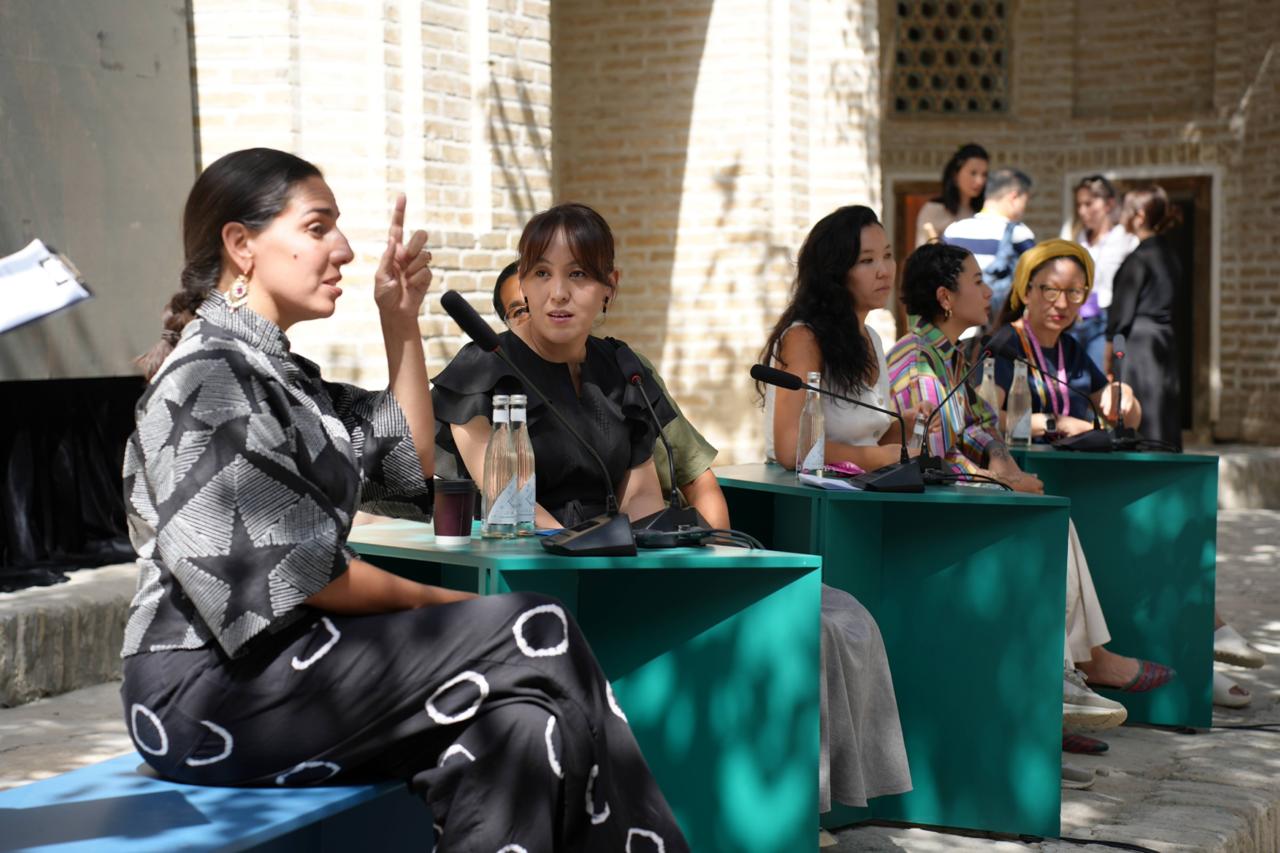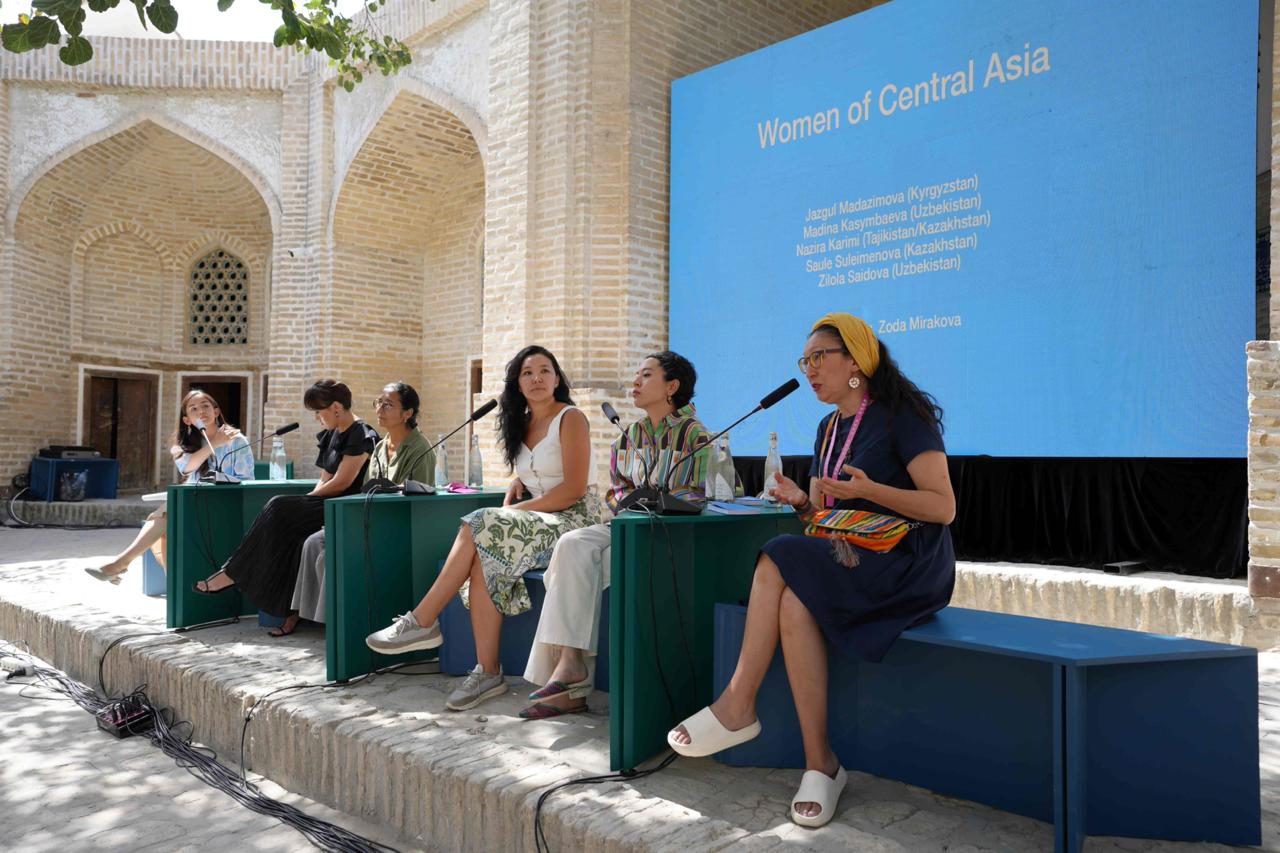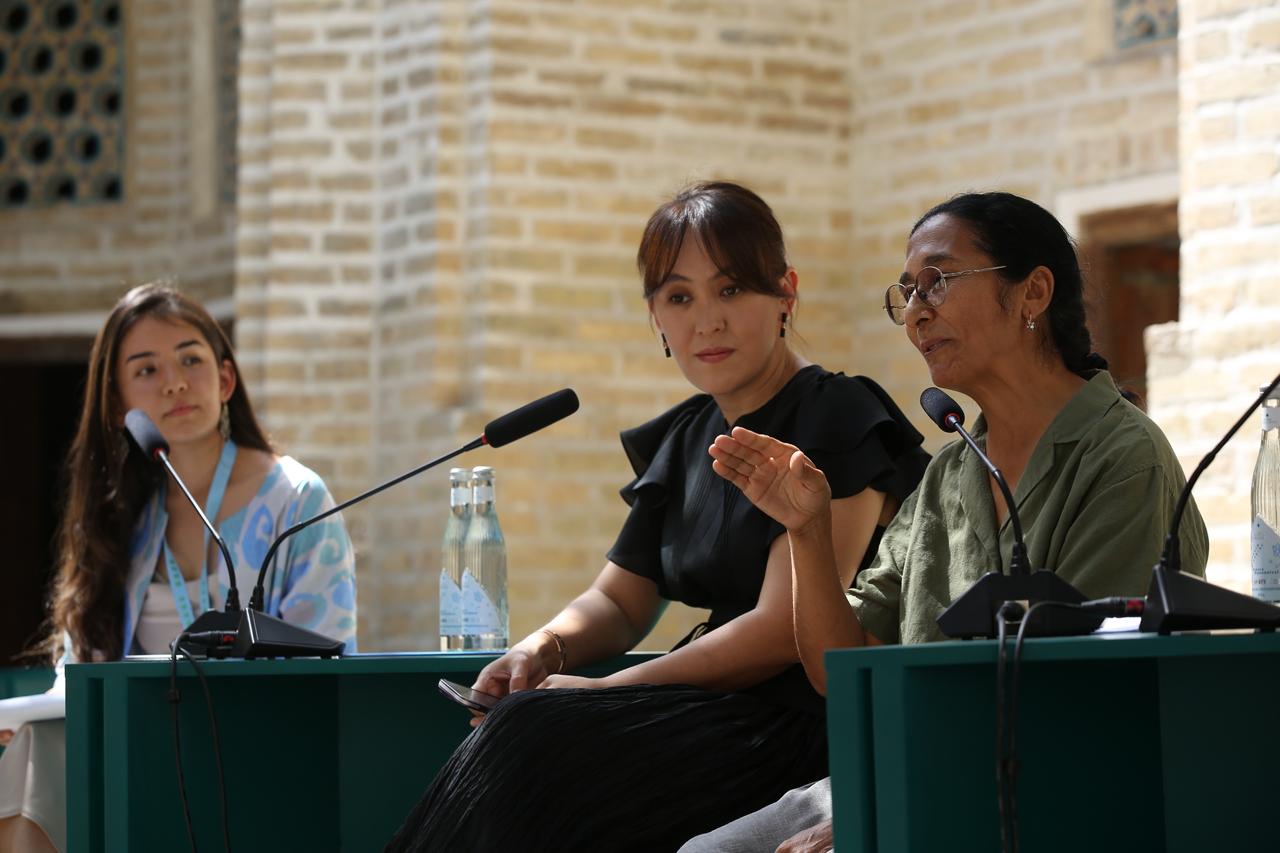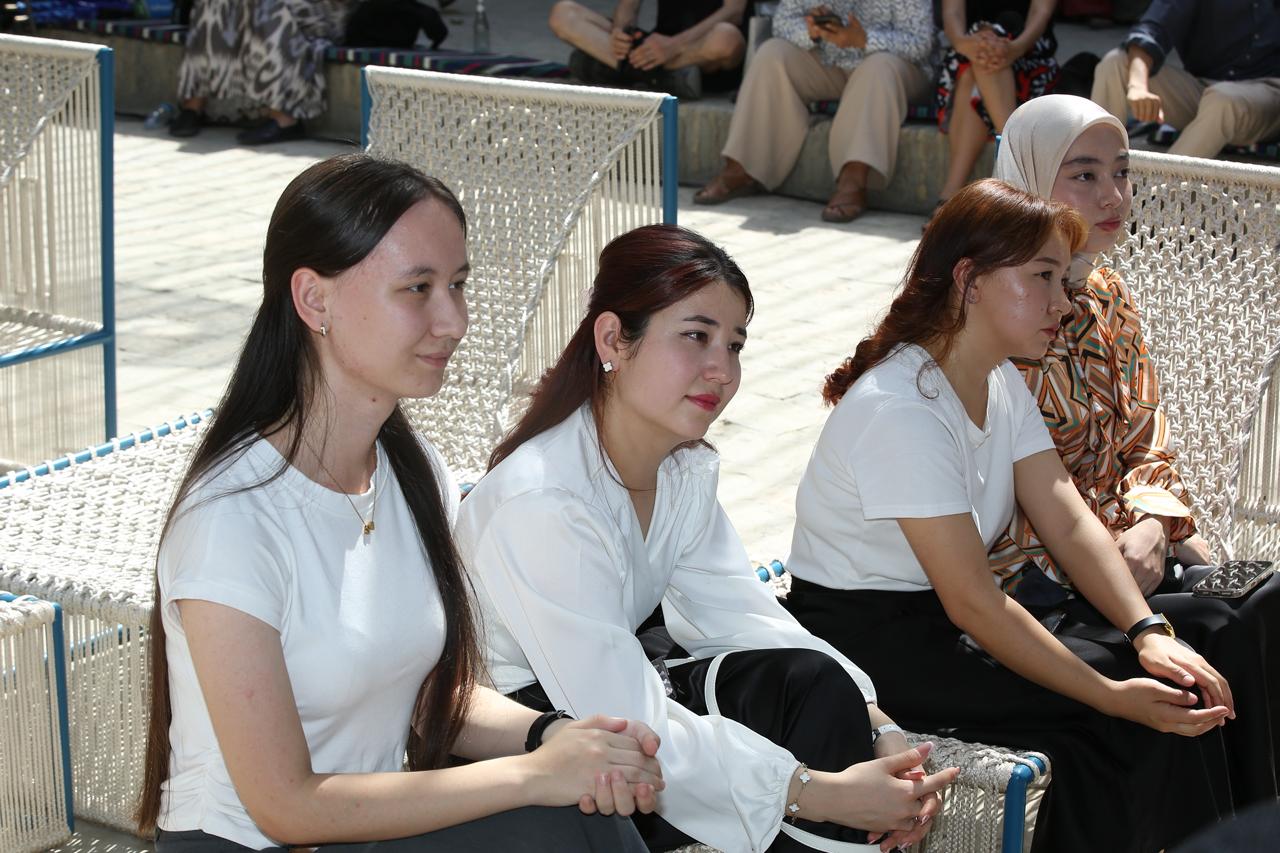The inaugural Bukhara Biennale “Recipes for Broken Hearts” featured the panel discussion “Women of Central Asia,” organized with the support of ACWA Power Uzbekistan. The session brought together artists from across the region to explore how cultural heritage and contemporary realities influence their creative practices. It took place on 6 September 2025 at the House of Softness, located in the historic Gavkushon Madrasa.
The Bukhara Biennale is a new initiative in contemporary art, staged across recently restored historic landmarks of Bukhara, a UNESCO Creative City. Its first edition runs from 5 September to 20 November 2025, with plans for further development in the future.
The discussion served as an example of ACWA Power’s commitment to advancing women’s empowerment in Central Asia. In addition to partnering on the event, the company invited female students from Shirin Energy Technical College, representing different regions of the country, to attend the Biennale. This initiative is part of ACWA Power’s broader strategy to foster female talent in the energy sector and builds on its educational programs at Shirin College.
“ACWA Power is proud to be a strategic partner in Uzbekistan’s energy transition, with US$15 billion invested in 15 transformational projects spanning wind, solar, battery storage and green hydrogen. Our mission is to be a trusted partner in delivering the country’s Vision 2030 by ensuring affordable and sustainable energy through innovation and global expertise. We place strong emphasis on developing local talent and supporting youth, so that our projects create lasting social and economic impact. Women’s leadership is at the heart of our strategy,” said Janona Akhmedova, Head of Communications, ACWA Power Uzbekistan.
The session was moderated by Zoda Mirakova, who introduced panelists from Kyrgyzstan, Tajikistan, Uzbekistan and Kazakhstan:
- Jazgul Madazimova (Kyrgyzstan), socially engaged artist.
- Nazira Karimi (Tajikistan/Kazakhstan), visual artist and scenographer whose video installations explore collective memory and women’s destinies.
- Madina Kasymbaeva (Uzbekistan), the only woman continuing the Tashkent embroidery tradition.
- Saule Suleimenova (Kazakhstan), artist known for bio-collages and paintings addressing post-colonial identity and ecology.
- Zilola Saidova (Uzbekistan), documentary photographer who has documented Central Asian communities for over two decades.
“Uzbekistan is ACWA Power’s largest market outside the Kingdom of Saudi Arabia, and we are proud to play a key role in its economic and social development. Women are a driving force of progress, and through discussions like today’s, we move forward together. We were also pleased to welcome students from Shirin Energy College in Syrdarya. Our goal is to show them that the role of women in society is invaluable,” emphasized Lamiya Khudoyarova, Head of Legal, ACWA Power Uzbekistan.
Each participant shared how the resilience of Central Asian women and their cultural heritage shape artistic practice:
- Saule Suleimenova reflected that the multilayered mosaic of traditions in the city feels like “a tapestry woven from stories and people.”
- Zilola Saidova stressed that participation in the Biennale offers a unique opportunity to connect traditional and contemporary art, presenting her project on the Mugat community aimed at preserving its rapidly changing culture.
- Nazira Karimi explained that her artistic practice is rooted in family oral histories: in her film Haftar she combines fact and fiction, showing how imagination can be a powerful tool in reinterpreting history.
- Jazgul Madazimova presented her project A Thousand Prayers, created from women’s headscarves. She noted that each piece of fabric carries memories of prayer, labor, and care, forming a special bond with Bukhara’s women and highlighting the importance of spiritual support in difficult times.
“In Uzbekistan we are implementing one of the largest energy portfolios in the region – over 12 GW by 2031. These projects will reduce CO₂ emissions by more than 10 million tonnes annually and cut natural gas consumption by 5.02 billion cubic meters each year. Within this transformation, women’s empowerment has a central role. We believe women’s leadership is a strategic resource and a competitive advantage. Development is not only about megawatts and infrastructure, but also about culture, inspiration, and new meaning,” said Nigina Jumayeva, Head of Strategy, ACWA Power Uzbekistan.
The “Women of Central Asia” panel highlighted the richness of artistic voices across the region and the power of cultural heritage to inspire contemporary practice. The Biennale demonstrated how women in Central Asia are shaping the future of art and storytelling. ACWA Power’s support, along with the engagement of students from Shirin Energy College, underscored the importance of investing in women’s education and leadership. The discussion concluded with a call to recognize diverse forms of women’s resilience and preserve their stories within the cultural narrative of the region.

